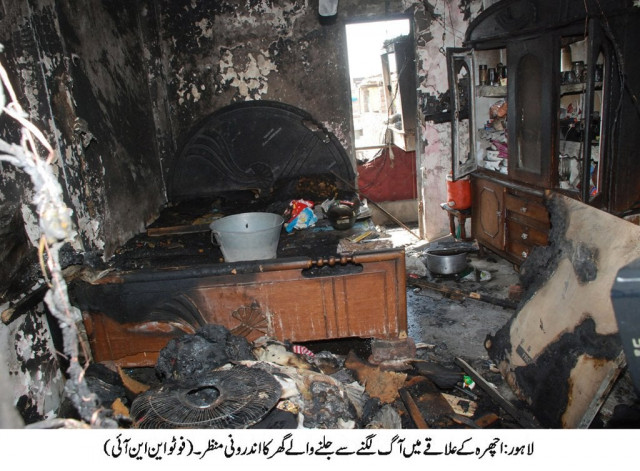Domestic tragedies
Countless lives are needlessly lost every year from simple ignorance or wilful carelessness in Pakistan.

An electrical fault is likely to have been behind the deaths of three children in Ichra, who were locked in their home when the fire broke out. PHOTO: NNI
An electrical fault is likely to have been behind the deaths of three children in Ichra, Lahore, on June 4. A mother had left the home, locking the three children in, when the fire broke out. By the time their father gained access, two of the girls were dead and the other died later at the Mayo hospital. The three children were aged between two and four.
The story got little coverage in the media but it points up yet again the need to develop a culture of safety. It is heart breaking that so many lives are lost because we do not pay sufficient attention to the basics. In developing a culture of safety, school and the national curriculum would be a good place to start — to highlight the need for effective quick-response rescue and medical services.
The Rescue 1122 service has been in operation in Punjab for almost a decade now and it provides an excellent service where it is available — which is not everywhere. Officers from the service do go to schools and colleges and educate students not just on safety but on basic first-aid as well, but this is not enough. There are numerous occasions when the rescuers are unable to reach the scene of an incident due to the narrowness of lanes or encroachments.
Safety in every aspect of our lives needs to be moved up the national agenda, as countless lives are needlessly lost every year from simple ignorance or wilful carelessness. The fatalistic ‘what will be will be’ attitude that is prevalent needs to be replaced by a proactive paradigm that is preventative and lifesaving — and remarkably cheap to implement. A goal well worth reaching for.
Published in The Express Tribune, June 7th, 2014.
Like Opinion & Editorial on Facebook, follow @ETOpEd on Twitter to receive all updates on all our daily pieces.



















COMMENTS
Comments are moderated and generally will be posted if they are on-topic and not abusive.
For more information, please see our Comments FAQ